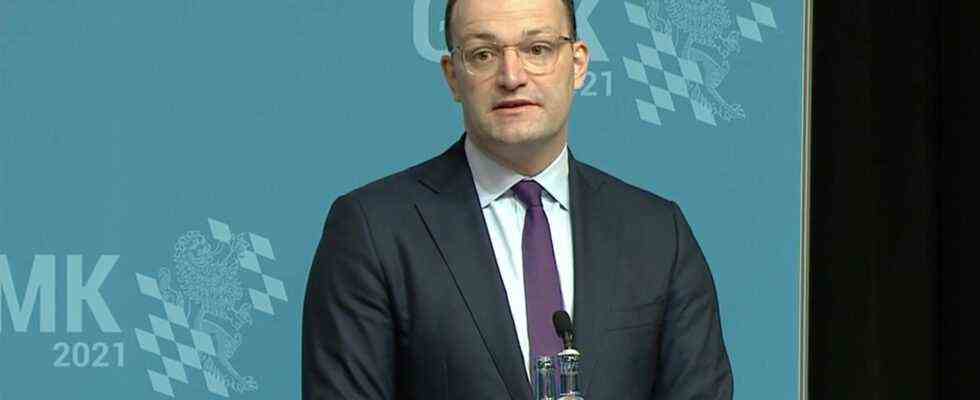Status: 05.11.2021 1:43 p.m.
The federal and state health ministers agree: The efforts in the fight against the fourth corona wave must be intensified. Therefore, they now recommend booster vaccinations for everyone as well as mandatory tests in homes.
At their conference, the federal and state health ministers agreed on several important points for the fight against the corona situation, which is currently worsening again. On the one hand, according to Federal Health Minister Jens Spahn, the 2G and 3G concepts should become even more important as a prerequisite for access to events or restaurants. In regions with particularly high numbers, the focus should be on 2G. In this context, particular attention should be paid to the control of evidence.
Spahn described the protection of places “where the particularly vulnerable live” as a further central measure. The ministers therefore decided to extend the mandatory testing in old people’s and nursing homes. The chairman of the conference, Bavaria’s Minister of Health, Klaus Holetschek, said they wanted to put a “security lock” in the homes and to push a federal law. Accordingly, vaccinated or recovered visitors to homes should also be obliged to take tests, but these should be free of charge.
Refreshments generally after six months
“It is important to break the dynamic that is there now,” emphasized Holetschek. Therefore, health ministers generally recommend a booster dose six months after the second dose. This applies above all to elderly and previously ill people as well as medical staff, but ultimately also to everyone, said the CSU politician. “The situation is sometimes dramatic, worrying and anything but all-clear.”
Spahn sees Germany facing “difficult weeks”
For his part, Spahn also called for the booster vaccination: “We need more speed.” Boosters after six months should become the rule, not the exception. It was not long known that the third vaccination “makes such a clear difference” in breaking the wave. Spahn called it an “important signal” that the medical profession as well as the federal and state governments were united on this issue. Now the general practitioners’ practices have a duty, but there must also be public offers such as vaccination centers and vaccination buses.
Germany is facing “very difficult weeks” in the corona pandemic, said Spahn. It is known that about 0.8 percent of the newly infected ended up in the intensive care unit after ten to 14 days. With a number of new infections of 40,000, this means that 350 to 400 of these infected people would have to be treated in intensive care units after a few days.

